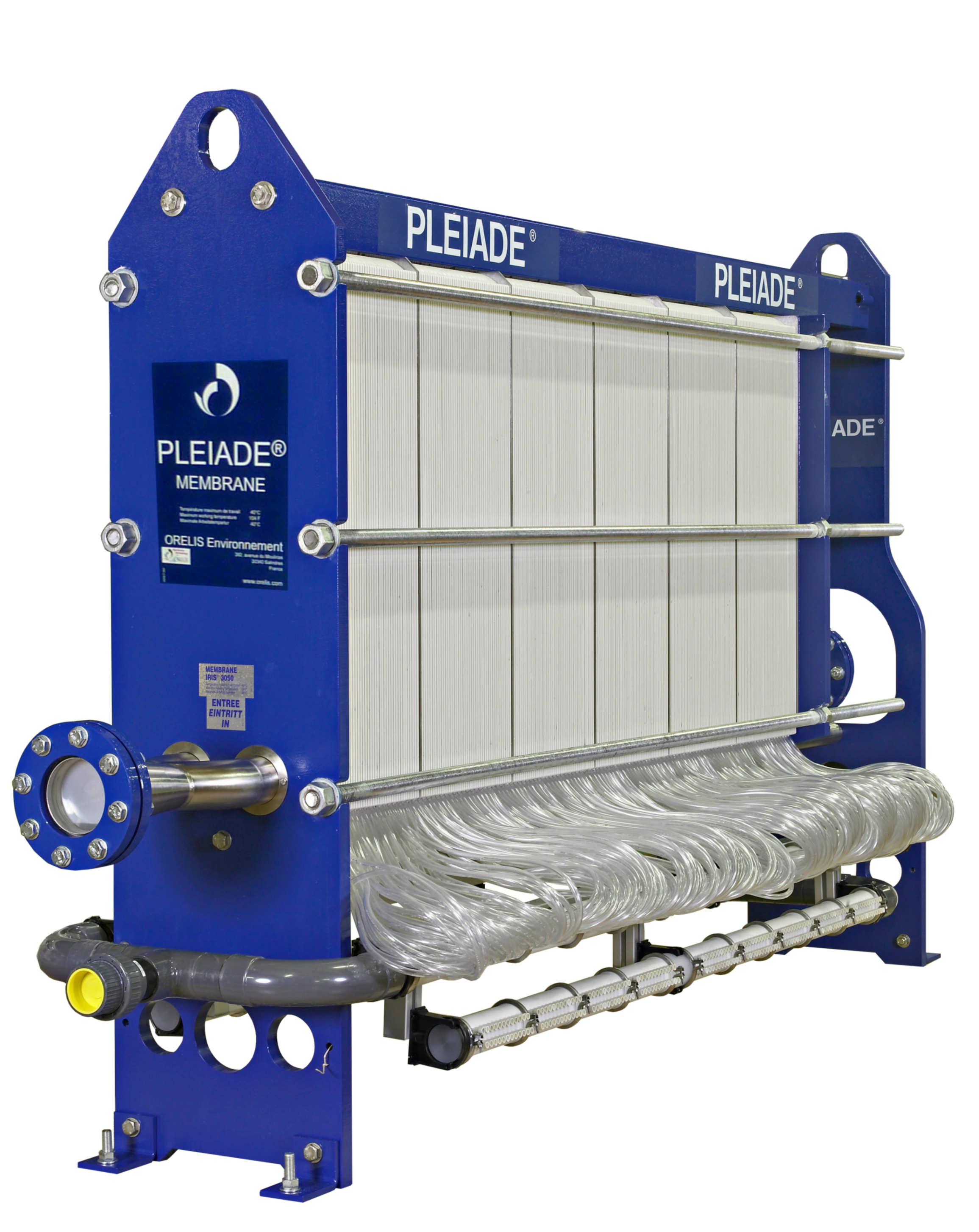Equipment development
Alsys designs filtration equipment development. The module is one of the main filtration equipment in a filtration system.
Knowledge and experience
A module, at Alsys, is the assembly of a housing, filtration membranes and seals. We talk about sealing because our modules only filter liquids. Seals are therefore guardians that prevent the loss of the product being filtered or to be filtered. The quality of the assembly of the modules is very important and is discussed in a separate chapter. We have a wide range of more than 30 modules in our catalog. Several types of modules exist, and we present them in a ceramic range and a polymeric range.
A module, as we said before, is the assembly of a type of housing, a type of seal and of course membranes.
Module in ceramic range
First, we will talk about the ceramic range, it is declined in 2 brands KLEANSEP™ and CERAMEM®. The modules designed are tubular types. The module geometry selected for your project, as well as the filtering surface, depends on a number of parameters that we examine together. Indeed, they depend on the product (category of liquid?) and the volume to be filtered. They also depend on the production needs, for example 24/24h, that you define to reach your objective...
Send us your project and we will determine together what is best for you: orelis@alsys-group.com
Let's come back to the filtration module, it is in a vertical position on the installation. Its particularity lies in the quality of the materials it is made of, both in terms of the housing (stainless steel, CPVC,...) and the seal (EPDM, Viton...). They are resistant to temperatures of 100°C, high pressures (60 bar) and extreme chemical conditions (pH 0 to 14). In the table below, find the different materials created and implemented on filtration systems, whether they are KLEANSEP™ or CERAMEM® brand.
Module in polymeric range
Secondly, we have the polymeric range, under the brand name PLEIADE®. The PLEIADE® module is flat type. It is also an assembly, but this time we talk about stacking. Indeed, this module consists of a stack of membrane plates and separator plates. All this assembly is located between the 2 plates of a containment press. The plates also serve as a support for the whole. One of the plates is removable to allow a tightening plate against plate for a good sealing. When an anomaly appears, such as a cloudy permeate. The installation, equipped with a PLEIADE® module, does not need to be stopped in the middle of a production cycle. Indeed, an immediate corrective action is carried out, it simply consists in isolating the plate at the origin of the anomaly.
Product data sheets (.pdf):
|
Kleansep™ tubular ceramic range |
||
|
Modules type |
Membrane area in m² |
Number of membranes per module |
|
K01 |
0.16 to 0.5 |
1 |
|
K03 |
0.48 to 1.5 |
3 |
|
K07 |
1.12 to 3.5 |
7 |
|
K19 |
3.04 to 9.5 |
19 |
|
K37 |
5.92 to 18.5 |
37 |
|
K67 |
10.72 to 33.5 |
67 |
|
K99 |
15.84 to 49.5 |
99 |
|
K138 |
22.08 to 69 |
138 |
|
Material type |
||
|
Kleansep™ |
CeraMem® |
|
|
Housings |
SS 316L, SS 316Ti, Titanium, Uranus B6 (904L), Hastelloy C22, Hastelloy C276, |
CPVC, SS (304, 316L, 2205, 2507, Hastelloy), Fiberglass |
|
Seals |
NBR, EPDM, FPM, SILICONE |
EPDM, Viton 70 / 90 |
|
Pleiade® polymeric flat range |
||
|
Modules code |
Membrane area in m² |
Number of plates per module |
|
P10 |
0.1 to 7 |
1 to 7 |
|
P2030 |
7 to 27.3 |
20 to 78 |
|
P2060 |
30.8 to 58.8 |
88 to 168 |
|
P2085 |
60.9 to 88 |
174 to 252 |
|
P2100 |
88 |
250 |




 CPVC
CPVC

